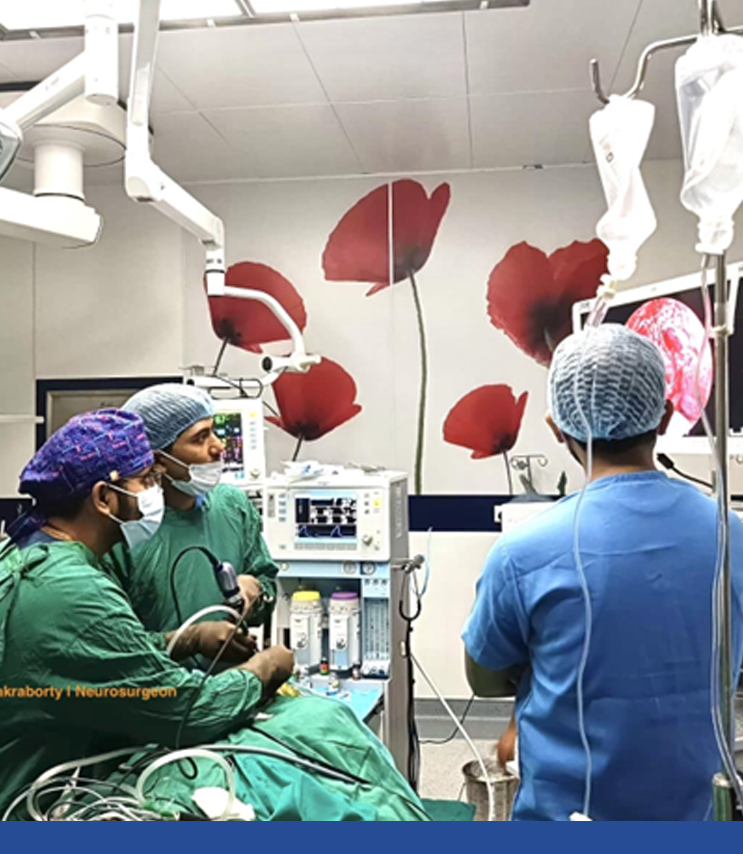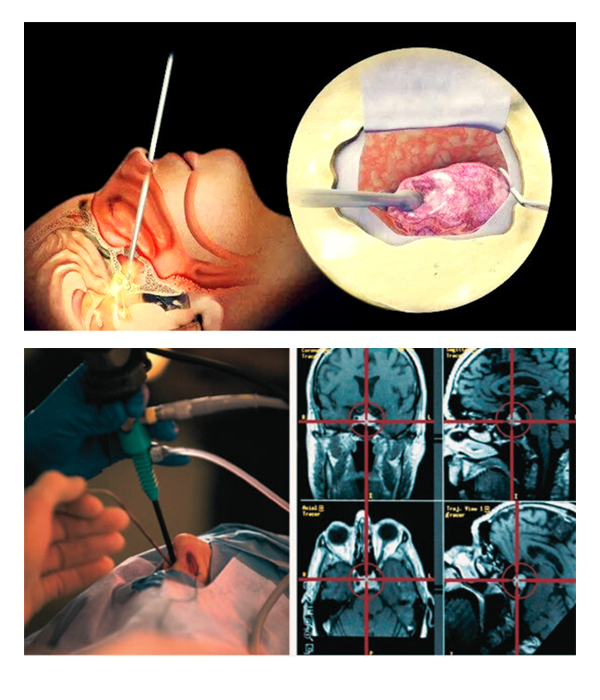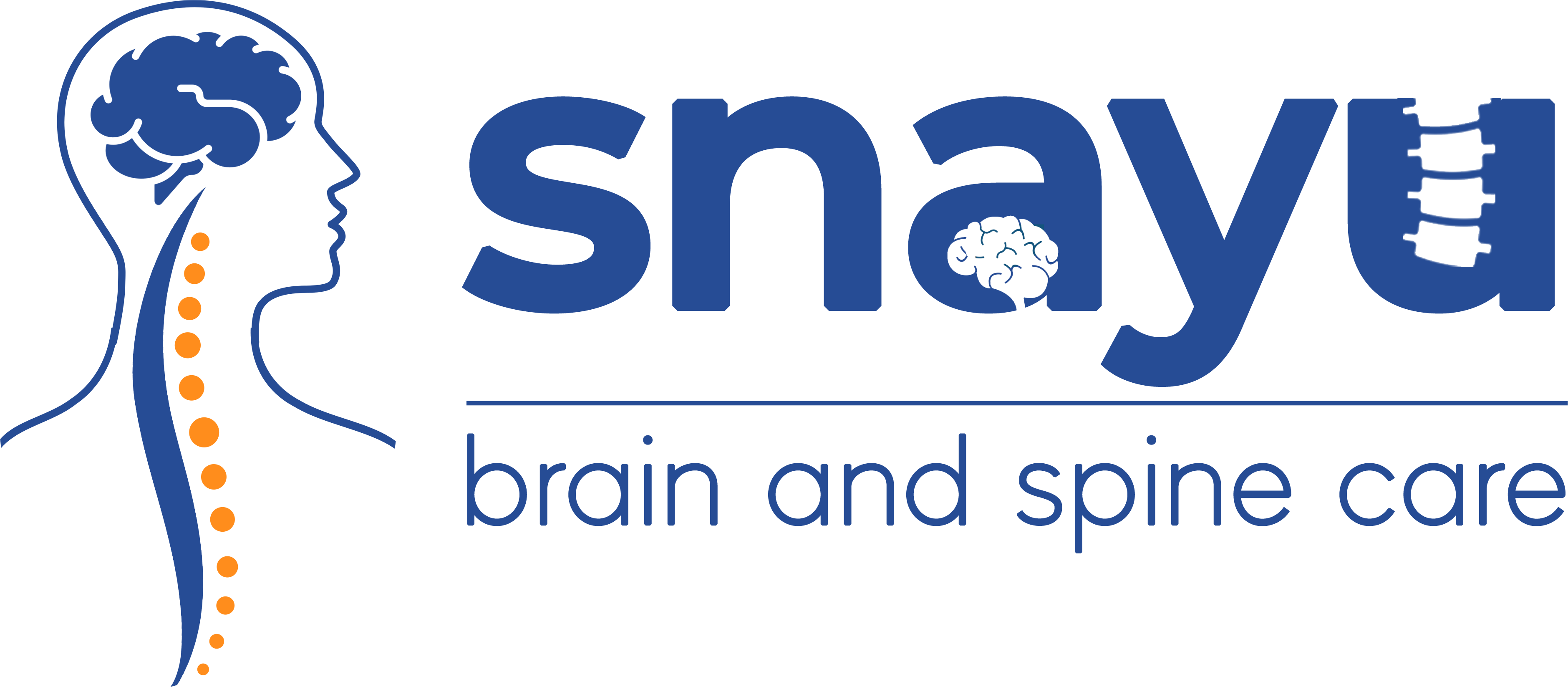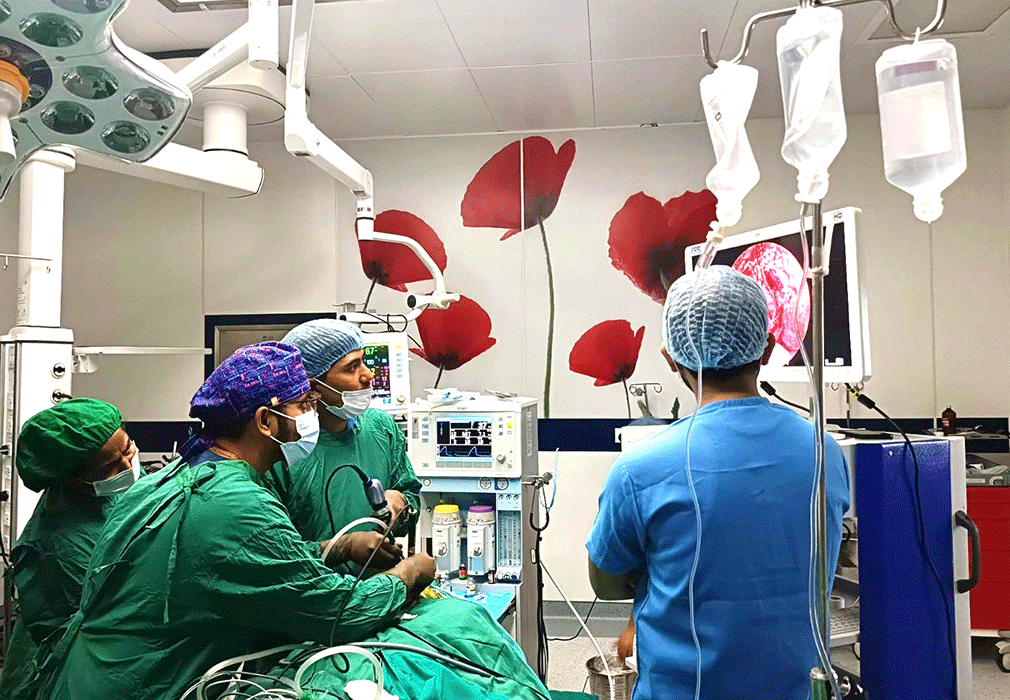Endoscopic Skull Base Surgery
Welcome to Snayu, where we specialize in advanced and minimally invasive techniques for treating a variety of conditions affecting the skull base. One of our key procedures is Endoscopic Skull Base Surgery, particularly for pituitary tumors and other skull base disorders. This page will provide an overview of the surgery, its benefits, and address some common questions.

What is Endoscopic Skull Base Surgery?

Endoscopic skull base surgery is a minimally invasive technique that uses an endoscope (a thin, flexible tube with a camera and light) to access and treat conditions at the base of the skull. This approach is often used for tumors and other abnormalities in hard-to-reach areas without the need for large incisions, resulting in quicker recovery times and less postoperative discomfort.
Why Choose TLIF Surgery?
TLIF surgery is often recommended for patients suffering from:
- Degenerative disc disease
- Spondylolisthesis
- Spinal stenosis
- Recurrent disc herniations
- Other conditions causing chronic back pain and instability
Benefits of Endoscopic Skull Base Surgery

Minimally Invasive: No large incisions, reducing scarring and postoperative pain.

Precision: Enhanced visualization allows for precise removal of tumors and repair of defects.

Lower Risk of Complications: Minimizing disruption to surrounding tissues reduces the risk of complications such as infections and CSF leaks.
Endoscopic Skull Base Surgery Procedure
- Anesthesia: The patient is placed under general anesthesia.
- Endoscopic Access: The endoscope is gently advanced through the nostrils and sinuses to reach the tumor.
- Tumor Removal: Specialized surgical instruments are used to excise the tumor while preserving surrounding healthy tissue.
- Closure: The surgical area is carefully sealed, often using tissue from the patient to prevent cerebrospinal fluid (CSF) leaks.
Pituitary Tumors
Endoscopic Transnasal Surgery is a preferred method for removing pituitary tumors. The endoscope is inserted through the nasal passages to access the tumor without the need for external incisions.
- Anesthesia: The patient is placed under general anesthesia.
- Endoscopic Access: The endoscope is inserted through the nasal passages to locate the source of the CSF leak.
- Repair: The leak is repaired using tissue grafts or synthetic materials to create a watertight seal.
- Recovery: Patients are monitored for signs of infection or recurrence of the leak.
CSF Rhinorrhea Repair
Cerebrospinal Fluid (CSF) Rhinorrhea occurs when there is a leak of CSF through the nose, typically due to trauma, surgery, or tumors. Endoscopic surgery allows for precise identification and repair of the leak.
- Skull Base Tumors: Besides pituitary tumors, other benign and malignant tumors at the skull base can be removed using endoscopic techniques.
- Chordomas and Chondrosarcomas: These are rare tumors that can be effectively treated with endoscopic surgery.
- Invasive Fungal Sinusitis: Severe infections that affect the skull base and sinuses can also be managed endoscopically.
Other Conditions
Some Frequently Asked Questions in Neurology
What is the recovery time after endoscopic skull base surgery?
Recovery time varies but is generally shorter compared to traditional open surgery. Most patients can return to normal activities within a few weeks.
Are there risks associated with endoscopic skull base surgery?
As with any surgery, there are risks, including infection, bleeding, and CSF leaks. However, endoscopic techniques typically have lower complication rates.
How is the success rate for pituitary tumor removal with endoscopic surgery?
The success rate is high, with most patients experiencing significant improvement or complete resolution of symptoms.
Will I need to stay in the hospital after the surgery?
Yes, a short hospital stay is usually required for monitoring. Most patients are discharged within a few days.
Can all skull base tumors be treated with endoscopic surgery?
Not all tumors are suitable for endoscopic surgery. The suitability depends on the tumor's size, location, and type. Your surgeon will evaluate and recommend the best approach.
What should I expect during the recovery period?
You may experience nasal congestion, mild pain, and fatigue. Follow your surgeon's instructions on medications, activity restrictions, and follow-up appointments.
Will I need additional treatments after surgery?
Depending on the tumor type and complete resection, additional treatments such as radiation or chemotherapy may be recommended.
How do I prepare for endoscopic skull base surgery?
Preparation involves preoperative evaluations, imaging studies, and following your surgeon’s instructions, such as fasting and adjusting medications.
Can endoscopic surgery be used for recurrent pituitary tumors?
Yes, endoscopic surgery can be an effective option for treating recurrent pituitary tumors, offering a minimally invasive approach for reoperation.
What is the long-term outlook after endoscopic skull base surgery?
The long-term outlook is generally positive, with many patients experiencing lasting relief from symptoms and a good quality of life.
Visit to make an appointment

Best Multispeciality Hospital in Kolkata
JC-16 & 17, No. 3A, Broadway Rd, opp. to Stadium Gate, Sector 3, Bidhannagar, Kolkata

